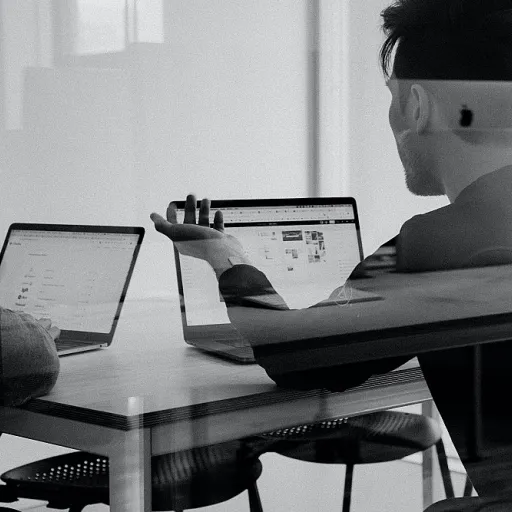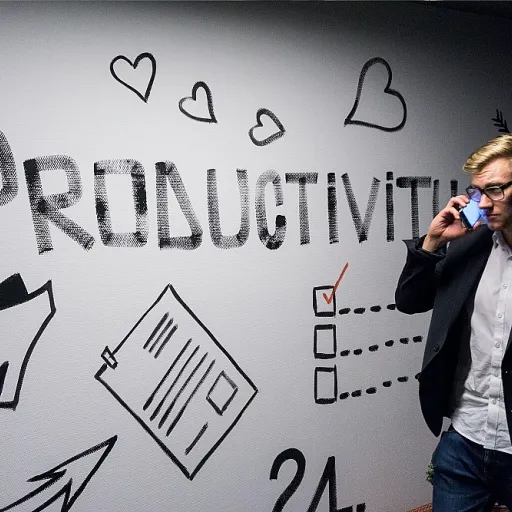
Understanding the Importance of Candidate Experience
Recognizing the Significance of a Positive Journey
In the highly competitive landscape of the manufacturing industry, crafting an exceptional candidate experience is not just a trend but a business imperative. Hiring managers and talent management teams are increasingly focusing on nurturing a candidate experience that not only attracts but also retains top manufacturing talent. The experience a candidate faces during the hiring process—from initial contact to the assessments and final offer—can greatly influence their perception of the company and determine their decision to accept a job offer. In the context of manufacturing assessments, providing a seamless journey for candidates can significantly impact both hiring success and long-term employee engagement. While assessments help to pinpoint skills, abilities, and potential for various manufacturing roles, the method and manner of assessment can either enhance or hinder the candidate's overall experience. Crucial components such as fair testing, clear communication, and timely feedback shape a candidate's journey, making it crucial for hiring managers to emphasize all stages of the hiring process. Moreover, assessments in the manufacturing sector often evaluate both hard skills and soft skills, demanding tests that not only measure technical abilities but also problem-solving and cognitive capabilities. In this fast-paced industry, even roles like operator or customer service representative demand a blend of technical expertise and attention to detail, thus necessitating manufacturing assessments that are comprehensive and inclusive. Adopting a data-driven approach to assessment tests and assessments not only refines the hiring process but also aligns with organizational goals for hiring the best-fit candidates. For companies aiming to enhance their overarching business strategy, integrating a positive candidate experience in manufacturing assessments may pave the way for a more dynamic and engaged workforce. To understand how enhanced candidate experiences can enable workforce success, you can discover more insights here.Challenges in Manufacturing Assessments
Overcoming Assessment Complexities in the Manufacturing Landscape
Navigating candidate experience within manufacturing assessments presents unique challenges. The manufacturing industry demands a diverse range of skills, encompassing both hard skills like technical ability and soft skills such as problem solving or attention to detail. This blend is essential but often complicates how assessments are structured. Manufacturing roles are multifaceted, often requiring not just cognitive and technical aptitude but also adaptability in a high-pressure environment. Hiring managers must ensure their evaluations accurately reflect candidates’ potential in these areas. Thus, designing an assessment that is both comprehensive and fair is a significant challenge. Moreover, the technical nature of many manufacturing jobs necessitates stringent assessment tests for specific skills and abilities. Candidates are expected to demonstrate proficiency through various test formats, ranging from cognitive assessments to practical tests simulating on-the-job tasks. Another hurdle involves maintaining inclusivity. Manufacturers need to assess candidates fairly, ensuring potential talent from diverse backgrounds can access opportunities. Discriminatory biases, whether intentional or systemic, are concerns that must not be overlooked. Assessment logistics can also present barriers. Scheduling, technological accessibility, and ensuring consistent assessment conditions across multiple locations (common in large manufacturing firms) require robust management. Manufacturers aiming to attract and retain the best talent should prioritize refining their assessment strategies, ensuring they are streamlined, equitable, and reflective of the industry’s demands. Understanding the Role of a Sourcer in Candidate Experience offers further insights into enhancing candidate experience in this context.Designing Fair and Inclusive Assessments
Creating Equitable Assessments in Manufacturing
In the manufacturing industry, designing fair and inclusive assessments is crucial to hiring the right talent. Given the diverse range of roles from operator to management positions, the assessment of both soft and hard skills is paramount. When initiating the hiring process, assessments help in evaluating candidates’ skills and abilities. However, manufacturing assessments must go beyond traditional measures of employees’ competence. It is essential to ensure that assessment tests are constructed to fairly gauge both cognitive abilities and problem-solving skills, providing an accurate depiction of a candidate's potential within the job roles they are vying for. Manufacturing roles require a unique blend of skills that include a combination of technical prowess and attention to detail. Hiring managers must focus not only on pre employment tests that highlight technical competencies but also include tests that measure soft skills like communication and customer service. This balanced approach allows candidates to showcase their entire range of competencies and aligns with the organizational needs. Furthermore, assessments should leverage data driven insights to determine best fit candidates. Adopting a versatile approach with tailored assessment tests helps ensure diverse talent is not inadvertently filtered out due to biased evaluation systems. Ensuring fairness goes hand in hand with evaluating candidates' potential for growth, rather than solely focusing on their current abilities. Incorporating data analysis in assessment design supports talent management strategies, placing candidates in positions that truly match their skills and career aspirations. This approach can enhance the candidate experience by providing a transparent and equitable selection process, leading to a stronger, more inclusive workforce. For a deeper dive into enhancing the candidate journey through strategic recruitment techniques, consider exploring enhancing the candidate journey with a recruitment newsletter. Ultimately, these best practices ensure that manufacturing assessments are not just gatekeeping tools but rather catalysts for uncovering exceptional manufacturing talent.Leveraging Technology for Better Assessments
Integrating Advanced Tools for Enhanced Assessments
In the manufacturing industry, leveraging technology in assessments is pivotal to refining the candidate experience. The integration of advanced tools not only streamlines the hiring process but also ensures that assessments are fair and inclusive, aligning with the broader goals of talent management.
Technological advancements have introduced a variety of tools that can be utilized to assess candidates effectively. These tools are designed to evaluate both hard skills and soft skills, ensuring a comprehensive understanding of a candidate's abilities. For instance, cognitive and problem-solving skills can be assessed through sophisticated software that simulates real-world manufacturing scenarios.
Data-Driven Insights for Better Decision Making
Data-driven approaches in manufacturing assessments provide hiring managers with valuable insights into a candidate's potential fit for specific roles. By analyzing data from assessment tests, employers can identify patterns and predict a candidate's success in a manufacturing environment. This approach not only enhances the ability to assess candidates but also aids in identifying the best fit for the job, ultimately improving the overall candidate experience.
Enhancing Candidate Engagement Through Technology
Technology also plays a crucial role in maintaining candidate engagement throughout the hiring process. Interactive assessments and virtual simulations can capture a candidate's attention and provide a more engaging experience compared to traditional methods. This engagement is crucial in retaining top manufacturing talent and ensuring that candidates feel valued and motivated to join the organization.
Moreover, technology facilitates seamless communication between candidates and hiring managers, improving customer service and ensuring that candidates receive timely feedback. This continuous feedback loop is essential for refining the assessment process and enhancing the overall candidate experience.
Feedback and Continuous Improvement
Feedback as a Cornerstone for Continuous Growth
In the manufacturing industry, using assessments to gauge candidates' skills and abilities is crucial, but the process doesn’t stop there. To ensure a positive candidate experience, it's essential to integrate feedback mechanisms that allow both hiring managers and candidates to learn and develop. Providing feedback after assessments helps candidates understand their strengths in relation to the specific manufacturing roles they're applying for. Clear and constructive feedback not only increases the candidate's ability to improve their skill sets but also demonstrates an organization's commitment to the potential employees' growth. For hiring managers, feedback loops are invaluable as they provide data-driven insights into what parts of the assessments were effective and which could be improved. This feedback cycle ensures that the tests remain relevant to the manufacturing expectations and align well with the job requirements. To implement an effective feedback system:- Regularly review and update assessments: Ensure that all aspects of the assessment time are reflective of the current demands and challenges faced in manufacturing roles.
- Encourage open communication: Promote an environment where candidates feel comfortable sharing their experiences with the assessment process.
- Focus on both hard and soft skills: Feedback should cover cognitive and problem-solving abilities as well as attention to detail, enhancing customer service skills which are essential in certain manufacturing jobs.
Best Practices for a Positive Candidate Experience
Building a Positive Path for Candidates
Crafting a positive experience for candidates in the manufacturing sector is essential for companies striving to attract and retain top talent. A significant component of this is ensuring that job seekers view assessments as opportunities rather than hurdles. Emphasizing fair and inclusive assessment practices, leveraging technology, and providing constructive feedback are foundational steps toward enhancing the candidate experience in the manufacturing industry.
Prioritize Clear Communication
Communication is key during any hiring process. Inform candidates about what to expect during the manufacturing assessments. Clearly outline the skills and abilities being evaluated, whether it’s hard skills like technical proficiency or soft skills such as problem solving and attention to detail. Transparency helps candidates prepare effectively and reduces anxiety, fostering a more favorable perception of the experience.
Shape Assessments for Relevance
Ensure that assessment tests are relevant to the specific manufacturing roles for which candidates are being evaluated. Aligning the assessments closely with the job requirements helps in precisely measuring the candidate’s ability to fulfill the role. This not only supports better talent management but also ensures candidates feel their time and effort are valued and respected.
Ensure Consistent Feedback
Timely feedback is crucial in maintaining a positive candidate experience. Following up assessments with constructive feedback allows candidates to understand their performance and areas for improvement. This feedback loop can also highlight the importance companies place on the development of their prospective employees.
Integrate Data-Driven Insights
Utilizing data-driven approaches in assessments helps in making informed decisions that align talent with the best-fit roles. Effective use of cognitive and skills assessments can gauge a candidate’s potential success in specific manufacturing roles, aiding hiring managers in making precise decisions that enhance overall customer service and product output.
Amplify the Role of Hiring Managers
Hiring managers play a pivotal role in shaping the candidate experience. Their involvement throughout the assessment process is critical, as they bring a richness of industry knowledge and a personal touch that can make candidates feel more comfortable. Regularly training hiring managers on best practices in conducting assessments can significantly enhance the experience.
Creating a more seamless candidate experience not only secures top-tier candidates but also contributes to long-term success in the manufacturing industry. For more strategies on improving candidate experience and addressing challenges, explore additional resources on Understanding the Role of Outplacement Services in Candidate Experience.













